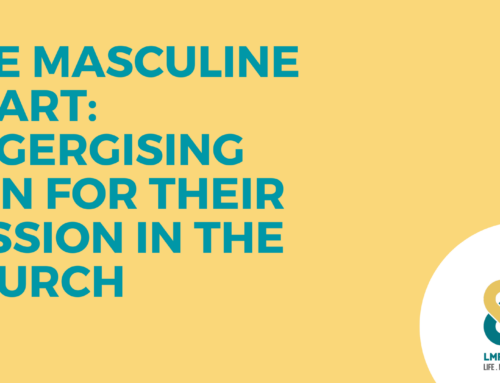Aug 12, 2011
Roundtable Convenors
Directors of Marriage Formation, PMRC Australia
The devastating consequences of divorce on the spouses, the children, the extended family and the community are only too well known. Who among us doesn’t know someone who has divorced and has seen first-hand the fallout which inevitably follows? No matter how ‘amicable’ it seems to be, the consequences can be long-lasting and far-reaching. For example, a number of studies have documented an increased likelihood of divorce among the children of divorced parents.
Naturally, there’s a great deal of interest in the Church for assisting couples in troubled or crisis marriages; almost every diocese has counselling services and there are a number of lay organisations, such as Retrouvaille, tasked for this purpose. By and large, they do a wonderful job with limited resources.
The question remains: Is this the best we can do and is this the smartest way to approach a very serious and significant problem?
With this question in mind it was opportune to be able to convene and participate in the roundtable discussion lead by one of America’s foremost family therapists, Dr Bill Doherty, on the topic of reconciliation among divorcing couples. He noted that a significant proportion of couples are ambivalent about their divorce, but once they ‘file’, it’s like they are on a superhighway with no exit ramps. Or to use another metaphor, the train has left the station and it’s too late to get off.
Once a couple initiates divorce proceedings, there’s often little opportunity for them to change tracks. Wanting to be helpful and/or efficient, lawyers, judges, court officials, mediation officers, schools, carers, friends and family, all tend to work towards the goal of divorce; getting the kids settled, new homes set up, healing the emotional carnage. No one wants to aggravate either spouse or the children by holding onto the hope of saving the marriage if there really is no hope.
While everyone wants to make divorce less painful, sometimes we do a disservice to couples. Many couples do have second thoughts about a decision to divorce. Often the realisation hits them that divorce isn’t going to release them from the requirement to interact with each other – if they have children, they will need to be even better communicators than they were when married to keep the family functioning as they coordinate across two households.
Other times, divorce is initiated in the midst of a major crisis that only coincidentally pits the spouses against each other. It can definitely be ugly, but sometimes it’s not the marriage which is causing them grief. With the passing of time, and the passing of the crisis, things spontaneously improve between them. In some cases, a period of controlled separation can be quite productive in breaking an entrenched conflict and giving the spouses the ‘space’ to deal with their own issues in all these circumstances. There’s a lot to be said for a cooling off period – it gives spouses the opportunity to let things settle before terminating the marriage.
Significant Insights from Doherty
There were a number of insights from Bill Doherty’s input that we would highlight.
- Challenging the assumption that everyone who presents for a divorce is committed to the process. According to Doherty’s study[1], around 25% of couples presenting for divorce indicated that they believed the marriage could be saved. 11% (just under half) of those couples were matched pairs (both the husband and wife); i.e., both thought their marriage could be saved. Roughly a third of individuals indicated interest in reconciliation services.
- Motivation Discrepancy. When couples present voluntarily for marriage counselling there is often a discrepancy between them in their commitment to the marriage, to their motivation to change, to their openness to a particular therapy/therapist. Doherty calls them ‘mixed agenda couples’. Successful counsellors acknowledge this important agenda.
- Discernment Counselling. This is Doherty’s framework for dealing with the discrepancy in motivation. It involves both individual sessions and couple sessions. In the individual sessions he uses different strategies according to the motivations of each spouse. The goal of Discernment Counselling is to assist the couple in deciding whether to do marriage therapy for a defined period (e.g. six months)– it is not marriage therapy itself. This discernment process is critical. If both spouses are not committed to marital therapy it will be ineffective, or at least limited, in achieving reconciliation.
[1] Interest in marital Reconciliation among Divorcing Parents.
Doherty, W.J., Willoughby B.J., Peterson, B. Family Court Review, Vol 49 No. 2 April 2011, 313-321
Reconciliation
Once a couple is committed to rebuilding their marriage, there are a number of different pathways. For couples where alcohol, drugs, mental illness, abuse, addictions or violence is involved, referral to other services is often a necessary part of the therapy. Healing for emotional wounds from outside the marriage can be valuable and is often undertaken by a spouse individually. General relationship skills commonly taught on many marriage enrichment programs can also be effective components, especially once the more difficult challenges are addressed and the couple is looking to establish new ways of relating in order to maintain their relationship.
At some stage, couples need to reconcile and heal the wounds inflicted by each other in order for the marriage to really flourish. It begs the question: What are we, as a community and as a Church invested in marriage and family, doing to help couples reconcile? Given that ‘reconciliation’ is a supreme value in the Catholic community, it’s surprising how poorly equipped we are to do it. And it’s not just about reconciliation for couples on the brink. It’s also teaching couples in solid marriages how to reconcile the everyday bumps and bruises of life. After all, it’s these accumulated ‘bumps and bruises’ that eventually cause the ‘last straw’ – the offense that is just one too many to take.
While some couples will be ‘natural’ reconcilers either because of their conflict-avoidant personalities or deep formation in virtue, the vast majority of couples benefit from specific formation in the essential elements of reconciliation itself. Specifically:
- Acknowledging the damage. Most times, both spouses have been wounded by the other. In order for them to be free to release their interior wounds, it is necessary for each spouse to carefully articulate their feelings of hurt. This process requires both a willingness to vulnerably self-reveal by the sharing spouse, and a firm commitment to self-restraint by the listening spouse so that a trusting atmosphere can be established.
- Expressing sorrow. Saying “I’m sorry” and expressing genuine regret is an important statement that reassures the injured spouse of the sincerity of the offender. It is a vulnerable sharing of the offender’s feelings as they accept responsibility for the damage they have caused.
- Asking for forgiveness is different and more difficult than expressing sorrow. “Please forgive me” is a request that willingly surrenders all power to the injured spouse. It takes great humility to ask for forgiveness. When this is mutually expressed when there is hurt on both sides, it is a powerful experience for the couple.
- Committing to change not only safeguards against further injury, it is a further indication of the sincerity of the offender.
- Granting forgiveness is a decision by the injured spouse to release all feelings of ill-will toward the offender. For many it is accompanied by a distinctive experience of healing, though healing often comes later for some people.
- Rebuilding trust. The rebuilding of trust may be immediate or take several months if the offense was substantial. The injured spouse will naturally feel anxious about further hurt and so the responsibility for re-establishing trust requires a sustained commitment by both spouses.
Reconciliation is a process that requires vulnerability on the part of both the offending and injured spouse. While it is possible for one spouse to unilaterally initiate the above process, it isn’t really reconciliation unless both participate. This presents immediate difficulties when there is a motivation discrepancy between them. If the injured spouse is the reluctant party, the offending spouse may need to work hard at rebuilding trust (step six) in order for the injured spouse to be willing to risk the vulnerability of the reconciliation process.
Moreover, when there is mutual hurt, it can be difficult for each spouse to own their culpability before their own injury is acknowledged. Thus many couples get locked in a stale-mate, with neither willing to risk the first move to reconciliation. Marriage educators[1]can be particularly helpful in motivating couples to move beyond their gridlock. Careful constructed exercises that walk couples through a process can be particularly helpful.
[1] A key feature of the Celebrate Love seminar for married couples is the Trust-Reconciliation session in which couples are carefully facilitated through a bilateral reconciliation process with very effective results.
Saving marriages before they start
If we, as a church community, want to be able to offer effective reconciliation support for couples in seriously threatened marriages, we need to be thinking about teaching couples before they even marry how to reconcile and heal the rifts between them. It’s possibly one of the most essential skills in a pre-marriage or marriage enrichment course.
Yet not many courses even address it. The course may deal with ‘conflict resolution’ but this is different to reconciliation. Conflict Resolution teaches couples how to avoid unnecessary conflict, argue fairly, disagree respectfully, state their needs clearly. These are good skills, but they won’t help the couple when they have a devastating argument; and most will have arguments irrespective of all the training we can give them. This is the unique domain of reconciliation and a different strategy is needed.
Sacramental Graces
The Sacrament of Penance offered by the Catholic Church can be an invaluable aid to spouses and couples undergoing reconciliation. Virtues such as humility, self-restraint, honesty, fidelity and gentleness are essential for the success of any reconciliation. These graces are readily available to all couples who seek to immerse themselves in the sacramental life of the Church.
While specific professional intervention is often necessary for couples in crisis or troubled marriages, it is important not to overlook the positive contribution that prayer and the sacraments can bring to the situation. The power of the Sacrament of Penance is particularly significant and an experienced confessor can be an invaluable resource to the couple. It is incongruous that as we increasingly ‘professionalise’ marriage support services, we simultaneously separate ‘grace’ from ‘skills’; as though one can optimally work in the absence of the other. In fact, we would counter that grace and virtues are a critical aspect and what might be an essential distinguishing feature between good secular counselling and Catholic counselling.






I enjoyed visiting your webiste. I leave comments rarely, but
you definately deserve a thumbs up!